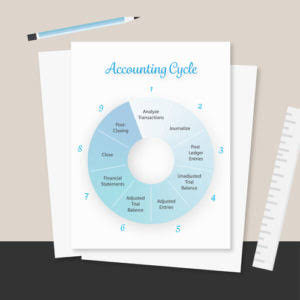
This will streamline inventory management and purchasing processes while avoiding discrepancies Year-End Accounting Checklist in reporting periods. For example, some tech companies have a fiscal year ending on October 31 because most of their major technology conferences are held during this time. Lastly, tax implications are a significant factor when considering the choice of a fiscal year-end. Deciding on a fiscal year-end date that optimizes tax savings or minimizes taxes can be crucial for a company’s bottom line.
- This gives the company more starting capital to work with and allows it to prepare financial reports in a quieter sales period.
- And with more time on their hands, Tanger’s auditors have identified and resolved transaction inconsistencies.
- Every time an entry arrived late or a change occurred in the general ledger after the schedule was reviewed, her team needed to re-save the Excel spreadsheet as a PDF before once again verifying the check marks on the list.
- The luxury resort industry, with its peak travel seasons and distinct revenue fluctuations, necessitates a non-calendar fiscal year-end.
Please Sign in to set this content as a favorite.

If that’s not a reality this year, consider working toward automating your inventory system in the next twelve months. On the same note, you’ll want to confirm that every customer who’s received goods or services from your business has received an invoice. Remember that promptly invoicing your customers allows their accounting teams to close the books on their accounting year swiftly. At the end of the fiscal year, ABC Electronics wants to close its “Sales Revenue” account, which has a balance of $500,000. Make necessary adjustments to your financial records for items that may not have been accounted for correctly, such as accruals, prepayments, and provisions.

Step 17: Prepare Cash Flow Statement

You’ll also need to take time to determine how your business’s assets have depreciated over the last twelve months. From furniture to computers to manufacturing equipment, the value these assets have lost should be recorded and reflected on your business’s financial statements. A year-end audit is a thorough examination of a company’s financial records, transactions, and statements by an external auditor.
- Comparing financial data from different companies requires consistent time frames.
- To help you manage and track all your tasks in the annual close process, we’ve created this downloadable checklist for you.
- My Accounting Course is a world-class educational resource developed by experts to simplify accounting, finance, & investment analysis topics, so students and professionals can learn and propel their careers.
- Then, reconcile payroll records with other financial records, such as general ledger accounts, bank statements and tax filings.
What are year-end financial statements?
In business, the EOY can be defined as the end of the calendar year or the fiscal year. The calendar year is the twelve month period that starts on January 1 and ends on December 31. No, Year-End varies globally based on regional business practices, retained earnings tax laws, and company-specific considerations. After making adjusting journal entries for payroll and depreciation, AAA Shipping runs an adjusted trial balance, which prepares the company to complete year-end closing by preparing closing entries. But even with a manual system in place, with careful planning and a checklist to refer to, your accounting department should be able to complete year-end closing accurately and on time. The IRS defines a fiscal year as 12 consecutive months, ending on the last day of any month (except December).

Conversely, luxury resorts might select a September 30 fiscal year-end to ensure their earnings statements are released after the peak vacation period. However, when comparing companies with different fiscal years, it’s essential to adjust data appropriately to ensure meaningful analysis and comparisons. On the Airbnb Accounting and Bookkeeping other hand, a fiscal year-end on January 31 allows ample time for retailers to complete their financial reporting processes while ensuring that they have enough resources dedicated to the holiday sales season. This practice also enables companies to provide more up-to-date information to investors and analysts, as their annual reports would be published closer in time to their business activities.
